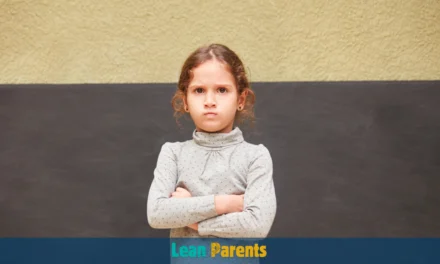Introduction to Gentle Parenting Discipline

Navigating the challenges of raising children has always been both rewarding and complex. Gentle parenting discipline is a profound approach that encourages kindness, empathy, and a nurturing environment for children to grow. It transforms the dynamic between parent and child, offering an alternative to traditional authoritarian methods. This article delves into the world of gentle parenting discipline, helping you understand its core concepts, benefits, and practical applications.
Understanding Gentle Parenting Discipline
What is Gentle Parenting?
Gentle parenting is a child-rearing philosophy that emphasizes empathy, respect, and positive communication. It shuns the old-fashioned authoritarian “because I said so” mindset and instead fosters an environment where children are understood as individuals with their own emotions, needs, and thoughts. Gentle parenting allows the child to express their feelings without fear, nurturing a deeper trust and connection between the child and parent.
The Key Principles of Gentle Discipline
At the core of gentle discipline lies the idea of mutual respect. It acknowledges that while parents provide guidance and boundaries, children deserve to have their emotions validated and their autonomy recognized. The key principles include empathy, positive reinforcement, consistency, and nurturing connection—all meant to guide a child’s behavior rather than control it. Gentle discipline aims to teach, not to punish, helping children understand the consequences of their actions.
The Difference Between Gentle Discipline and Permissive Parenting
A common misconception is that gentle parenting equates to permissive parenting, where children can act without boundaries. This is not the case. Gentle discipline involves setting clear and consistent boundaries, but with a compassionate approach. Unlike permissive parenting, which lacks structure, gentle discipline provides a framework where the child feels secure, knowing what behavior is expected of them, while also feeling respected.
Why Choose Gentle Parenting Discipline?

The Benefits for Children and Parents
Gentle parenting discipline has immense benefits for both children and parents. For children, it provides a nurturing environment where they feel valued, heard, and loved. This helps in building their self-esteem, emotional intelligence, and resilience. For parents, gentle parenting fosters a meaningful connection, reducing power struggles and enhancing cooperation. It allows parents to be guides rather than authoritarian figures, making parenting a joyful experience.
How Gentle Discipline Promotes Emotional Intelligence
By encouraging open conversations about feelings, gentle parenting helps children become more attuned to their emotions and those of others. This awareness forms the bedrock of emotional intelligence, teaching children to understand their own emotional triggers and respond to others with empathy. Instead of repressing emotions, children learn how to navigate them constructively.
Long-term Impacts on Child Development
The effects of gentle parenting reach far into adulthood. Children raised with gentle discipline tend to develop healthier relationships, stronger communication skills, and higher levels of empathy. They become more adaptable, problem-solvers, and are often more motivated to behave well not because of fear of punishment but because they understand the value of respect and empathy.
The Core Elements of Gentle Parenting Discipline

Building Empathy: The Foundation of Gentle Discipline
Empathy is the cornerstone of gentle parenting. By understanding a child’s perspective, parents can respond to their needs in a way that shows compassion. This builds trust and a sense of security, encouraging children to be more empathetic in return. Parents model the very behavior they wish to see in their children.
Fostering Positive Communication with Your Child
Effective communication is key in gentle parenting. This involves active listening—giving your full attention to your child and validating their feelings, regardless of how trivial they may seem. It’s about talking with, not at, your child, and using language that fosters connection rather than shame or guilt.
The Role of Boundaries in Gentle Parenting
Boundaries are crucial in any parent-child relationship. Gentle parenting doesn’t remove boundaries; it strengthens them in a nurturing way. Clear boundaries provide children with a sense of security and help them understand the expectations of acceptable behavior. It’s not about control but about guiding them to make responsible choices.
Encouraging Respectful Behavior Without Fear
Gentle parenting replaces fear-based obedience with respect-driven cooperation. Instead of punishing undesirable behavior, parents using gentle discipline explain why a behavior is not acceptable and encourage better choices. Respect becomes a two-way street, where both parents and children feel valued.
Practical Gentle Discipline Techniques

Using Natural Consequences to Teach Responsibility
Rather than imposing arbitrary punishments, gentle parenting relies on natural consequences to teach valuable lessons. For example, if a child refuses to wear a coat on a chilly day, they’ll feel cold and learn the importance of proper clothing. This way, the consequence is directly linked to the action, which fosters responsibility.
Redirecting Behavior Instead of Punishing
Redirecting involves guiding your child’s attention from unwanted behavior to an acceptable activity. If your child is throwing blocks, suggest they build a tower instead. This technique keeps the focus on what the child can do rather than what they cannot, reducing frustration and fostering cooperation.
The Power of Time-In vs. Time-Out
Instead of sending a child away for misbehavior, a “time-in” brings the child close to help them regulate their emotions. During a time-in, parents stay with the child, talk to them calmly, and help them work through their feelings. This approach is more comforting and effective than isolation, which can often lead to feelings of abandonment.
How to Use Positive Reinforcement Effectively
Positive reinforcement is about celebrating your child’s efforts rather than focusing solely on their achievements. Praising specific actions, such as “I love how you shared your toys with your friend,” helps reinforce the desired behavior and encourages children to keep making positive choices.
How to Handle Common Challenges in Gentle Parenting

Dealing with Tantrums the Gentle Way
Tantrums are a normal part of childhood, often reflecting a child’s struggle to express big emotions. In gentle parenting, tantrums are not viewed as misbehavior but as a sign that the child needs help. Parents are encouraged to stay calm, offer comfort, and help the child label their emotions, guiding them towards self-regulation.
How to Address Defiance and Power Struggles
Defiance often arises when children feel powerless. Instead of viewing it as disobedience, gentle parenting encourages parents to understand the root cause. Offering choices and involving children in decision-making can reduce power struggles by giving them a sense of control and autonomy.
Gentle Discipline Tips for Sibling Conflicts
Sibling conflicts are inevitable, but they offer an opportunity to teach empathy and conflict resolution. Instead of taking sides or punishing, encourage siblings to express their feelings and listen to each other. Guide them to find solutions that work for both parties, fostering problem-solving skills.
Navigating Public Meltdowns with Calm Strategies
Public meltdowns can be challenging, but gentle parenting focuses on staying calm and not worrying about judgment. Kneeling to your child’s level, offering comforting words, and removing them from overstimulating situations can help deescalate the situation. It’s about responding to the child’s needs, not the expectations of onlookers.
Adapting Gentle Parenting for Different Age Groups

Gentle Discipline for Toddlers: Establishing the Basics
For toddlers, gentle discipline is about establishing a nurturing foundation. This involves simple language, clear boundaries, and lots of affection. Toddlers are learning to navigate their emotions, and gentle parenting helps them feel safe as they explore the world.
Gentle Parenting Strategies for School-Age Children
With school-age children, gentle discipline includes fostering independence while maintaining connection. Encouraging problem-solving, listening to their concerns about school or friends, and guiding them with empathy are key strategies. It’s about striking a balance between guidance and autonomy.
How to Use Gentle Discipline with Teenagers
Teenagers require a different approach, as they are forming their identity and seeking independence. Gentle discipline for teens involves open communication, respect for their growing autonomy, and guiding them without judgment. It’s about being a supportive mentor rather than an authoritarian figure.
The Role of Connection in Gentle Parenting
Why Connection Reduces Misbehavior
Children misbehave less when they feel connected to their parents. Connection gives them a sense of security and belonging, reducing the need for attention-seeking behavior. Gentle parenting emphasizes daily moments of connection, like reading together or having undistracted conversations.
Activities to Strengthen Your Bond with Your Child
Simple activities can significantly strengthen the parent-child bond. Shared hobbies, bedtime stories, family meals, and even a few minutes of one-on-one play each day help nurture a strong emotional connection that lays the foundation for effective discipline.
How Active Listening Can Change Your Discipline Approach
Active listening means giving your child your full attention and validating their feelings without immediately trying to solve their problems. This approach helps children feel understood, making them more open to guidance and reducing instances of misbehavior driven by frustration or feeling unheard.
Common Myths About Gentle Parenting Discipline
Debunking “Gentle Parenting is Ineffective” Claims
One of the common myths is that gentle parenting is ineffective because it lacks immediate consequences. In reality, gentle discipline focuses on long-term behavioral changes and emotional development, which may not have the same immediate but often superficial impact as punitive measures.
Addressing Misconceptions About Being “Too Soft”
Being gentle doesn’t mean lacking authority. Gentle parenting involves setting clear boundaries, but with empathy and respect. It’s about teaching responsibility through understanding, rather than enforcing obedience through fear.
Why Gentle Discipline is Not a Lack of Consequences
Gentle discipline doesn’t mean there are no consequences. Instead of arbitrary punishments, children experience natural or logical consequences that are directly related to their actions. This approach helps them understand the real impact of their behavior, fostering accountability.
Self-Regulation for Parents
Parenting can be emotionally taxing, and how parents regulate their own emotions significantly affects their approach to discipline. Children are keen observers and learn emotional regulation by watching how their parents handle stress and conflict. Staying calm helps set a positive example.
Tips for Managing Your Frustration During Tough Moments
In the heat of the moment, it’s easy to lose patience. Techniques such as deep breathing, taking a short break, or mentally reframing the situation can help manage frustration. Gentle parenting isn’t just for children; it’s a practice parents apply to themselves as well.
Self-Care Practices to Support Consistent Gentle Parenting
Self-care is essential for maintaining the emotional energy required for gentle parenting. Engaging in activities that replenish your mental and physical well-being—such as exercise, hobbies, or simply taking time to relax—enables you to stay consistent in your parenting approach.
How to Build Patience and Resilience in Gentle Parenting
The Importance of Patience in Disciplinary Situations
Patience is vital in gentle parenting, as change doesn’t happen overnight. Children often repeat behaviors before they learn from them. Patience helps in responding to these behaviors with empathy and guidance, rather than frustration.
Techniques to Stay Calm Under Pressure
To maintain calm in stressful situations, mindfulness practices, such as breathing exercises and grounding techniques, can be highly effective. Visualization of positive outcomes and preparing for potential triggers can also help in staying composed when challenges arise.
Celebrating Small Wins in the Parenting Journey
Celebrating small milestones, like your child using words to express their feelings or managing a tantrum more calmly, reinforces positive behaviors—both in your child and in yourself. Gentle parenting is about progress, not perfection, and recognizing these moments is key to maintaining motivation.
Practical Tools and Scripts for Gentle Discipline
Key Phrases for Encouraging Cooperation
Certain phrases can greatly enhance cooperation. Using phrases like, “I need your help with this,” or “Let’s work on this together,” invites your child to be a part of the solution rather than feeling dictated to. Phrasing requests as opportunities empowers children.
Gentle Alternatives to “No” and Commands
Instead of saying “No running,” try “Let’s use our walking feet here.” This keeps the instruction positive and more likely to be received without resistance. Reframing commands as gentle suggestions helps maintain cooperation while still setting boundaries.
Sample Scripts for Difficult Situations
During conflicts, it can be helpful to have a few go-to scripts. For example, if a child hits, you might say, “I see you’re feeling very angry. We don’t hit people. Let’s find another way to show how we feel.” These scripts combine acknowledgment with gentle redirection.
Common Mistakes in Gentle Parenting Discipline
Overcoming the Trap of Inconsistency
Inconsistency can undermine gentle discipline. If boundaries shift based on a parent’s mood or convenience, children may become confused about what behavior is acceptable. Staying consistent, even when it’s tough, is essential to help children understand and trust the rules.
Balancing Being a Parent and a Friend
While gentle parenting fosters a close relationship, it’s important not to blur the lines between being a parent and being a friend. Children need a guide who sets limits. Maintaining this balance ensures they feel both supported and secure in knowing their parents are there to lead.
Avoiding the Pitfall of Over-Explaining
While explaining rules is a part of gentle discipline, over-explaining can lead to confusion or even encourage further debate. Keep explanations simple and clear, and be mindful that children often need action more than extended dialogue during disciplinary moments.
When Gentle Parenting Discipline Seems Difficult
What to Do When You Feel Overwhelmed
Every parent faces overwhelming moments. When gentle parenting feels hard, it’s important to take a step back and breathe. Remember, mistakes are part of the process. Seeking support from a partner or taking a break can help you regain perspective and patience.
How to Get Back on Track After a Challenging Day
Bad days happen, and that’s okay. Gentle parenting encourages self-compassion—acknowledging when things didn’t go as planned and trying again tomorrow. Reflecting on what went wrong, without judgment, can help you find better strategies for next time.
Seeking Support: Communities and Resources for Gentle Parents
There are numerous resources available for parents who practice gentle discipline—from online forums to local parenting groups. Sharing experiences, challenges, and victories with other gentle parents can be both comforting and educational.
Involving Co-Parents and Caregivers in Gentle Discipline
Aligning Parenting Styles with Your Partner
To ensure consistency, it’s important that both parents align on key aspects of gentle discipline. Open conversations about values, expectations, and boundaries can help both parents feel united in their approach, reducing confusion for the child.
Educating Grandparents and Caregivers About Gentle Discipline
Not everyone is familiar with gentle parenting principles. Educating grandparents and caregivers about the philosophy, and why you choose it, can help them understand and support your approach. It’s helpful to provide specific examples and tools they can use.
Creating Consistency Across Different Environments
Children need consistency to thrive. Ensuring that all caregivers are on the same page helps reinforce the same messages about behavior and expectations, whether the child is at home, at a relative’s house, or at daycare.
Promoting a Gentle Parenting Environment at Home
Creating an environment that promotes positive behavior involves minimizing triggers for misbehavior and providing opportunities for independent play and learning. A well-organized space helps children feel secure and fosters a sense of autonomy.
Modeling Respect and Empathy for Your Children
Children learn by observing. Modeling respectful interactions with others—such as saying “please” and “thank you”—teaches children these values far more effectively than simply instructing them. Being mindful of your own actions helps create a respectful home culture.
The Power of Routine in Gentle Discipline
Routines provide children with predictability, which reduces anxiety and power struggles. Consistent bedtime routines, morning routines, and meal schedules help children know what to expect, making transitions smoother and behavior more predictable.
Real-Life Stories from Gentle Parents
How Gentle Discipline Transformed Our Family Dynamics
Many families have seen dramatic changes after adopting gentle discipline. From reduced tantrums to stronger bonds, gentle parenting has transformed family dynamics by replacing stress and conflict with understanding and cooperation.
Success Stories: Overcoming Common Challenges
Gentle parenting isn’t without its hurdles, but real-life stories illustrate how parents have successfully navigated challenges like defiance, sibling rivalry, and public meltdowns. These success stories provide inspiration and practical insight.
Lessons Learned from Practicing Gentle Discipline
Every journey in gentle parenting is unique, filled with lessons about patience, empathy, and resilience. Parents who practice gentle discipline often reflect on how it has not only transformed their children but also reshaped their own attitudes toward parenting and personal growth.
Frequently Asked Questions About Gentle Parenting Discipline
Can Gentle Parenting Work with Strong-Willed Children?
Gentle parenting is especially beneficial for strong-willed children, as it channels their independence in positive ways. By offering choices and involving them in problem-solving, it respects their need for autonomy while setting firm boundaries.
How Do I Handle Repeated Misbehavior?
Repeated misbehavior can be frustrating, but gentle parenting focuses on understanding the underlying cause. Is the child feeling ignored? Are they struggling to express a need? Addressing the root issue is key to reducing repeated misbehavior.
Is Gentle Parenting Realistic for Busy Families?
While gentle parenting takes time, it’s adaptable to even the busiest schedules. Small moments of connection—a hug before school, listening during dinner, reading a story at bedtime—can make a big difference. It’s not about perfection, but about striving for connection whenever possible.
Conclusion
The Lasting Impact of Gentle Parenting Discipline
The effects of gentle parenting extend far beyond childhood. By raising children with empathy, respect, and connection, parents lay the groundwork for emotionally intelligent, compassionate adults. It’s a powerful, enduring gift that shapes not only the child but society as a whole.
Encouraging Parents to Embrace the Journey
Gentle parenting is a journey, not a destination. It’s filled with learning, unlearning, mistakes, and victories. Embracing this journey with an open heart, patience, and self-compassion can transform not only your relationship with your child but also with yourself.
Final Thoughts: Raising Children with Kindness and Respect
In a world that often demands toughness, choosing gentleness is an act of courage. By raising children with kindness and respect, we nurture a generation capable of empathy, critical thinking, and resilience. Gentle parenting discipline is about planting seeds today for a more understanding and compassionate tomorrow.






Trackbacks/Pingbacks